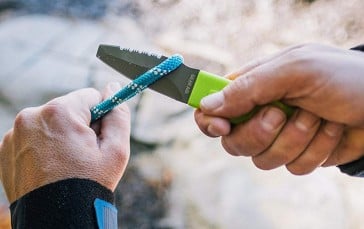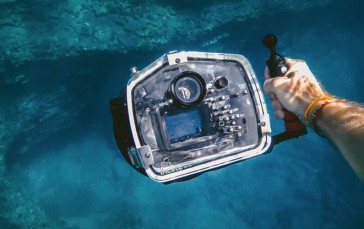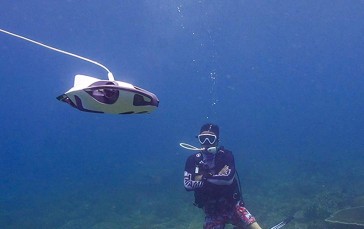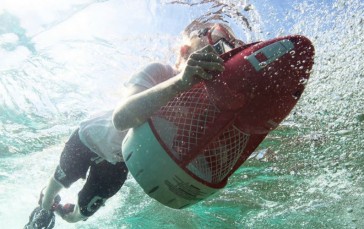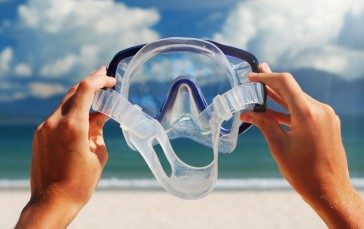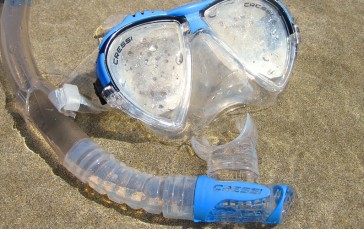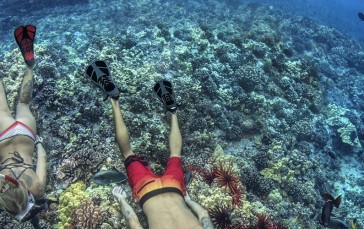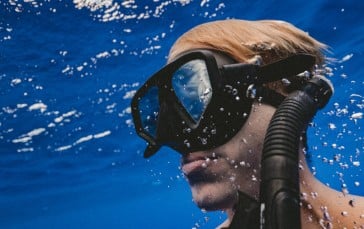Reasons To Be A Scuba Diver
If the idea of becoming a certified scuba diver attracts you, don’t think twice before taking the plunge. Just by deciding to join the league of certified scuba divers, you will open endless possibilities for you to explore the hidden treasures around you. If you do the simple math, you will know that the 70% of the Earth’s surface is nothing but water and becoming a diver means you will never run out of opportunities to get your gear and unfold the mysteries of the water world.
Reasons to Be a Certified Scuba Diver
When you love adventures and like to explore the unexplored, you usually don’t need many reasons to convince yourself to be a scuba diver. However, if you’re still standing on the fence and want to know more of what comes with the whole package, just consider the following reasons.
1. Be an Explorer
When you are a traveler, it is all about seeing new things and enjoying new experiences. Life is all about what could be around the next corner. But what about what’s under the ocean? Since the beginning of civilization, the call of the sea has been irresistible and for the longest, while the idea that man could swim with the fishes in comfort and with ease was just for the imagination. Scuba diving lets that inner explorer out. Let’s you become a traveler of under the sea. To explore, discover and marvel at a watery world, even these days so few get to see.
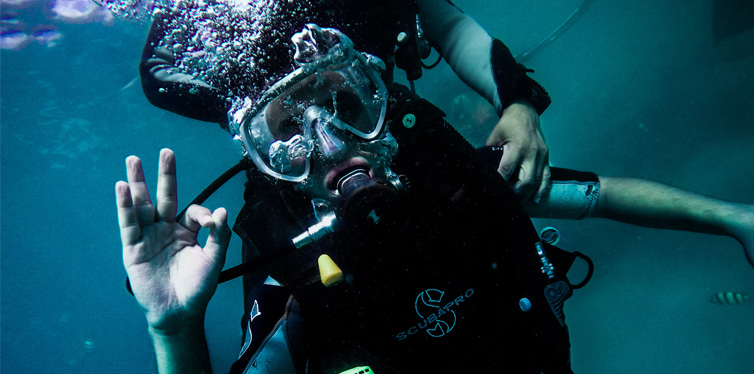
2. Travel, Explore And Rejuvenate Yourself
Scuba diving is good for the soul. You can break out from the daily chores and stresses of the world, with no social media, no fake news, no phone calls or WhatsApp. No distractions, just the pure sight of a wondrous aquatic world with its immense pleasures and satisfaction gained from being a firsthand witness to the wonders of nature.
It is a great hobby to maintain that can relieve you of your stress and bring you into a totally different world. Wherever you go, if there are water bodies, you are sure to find scuba diving happening. We just can’t stop ourselves as species from wanting to know what’s down there waiting.
Messing about in water is almost everyone’s favorite pastime. Once you are a competent scuba diver, you would want to spend an infinite time in the water. With scuba diving, you can go down deeper and feel as if you’re exploring the unexplored. The underwater is welcoming and beautiful and the solitude blissful. Whether you out in a blue hole in the Pacific or exploring your local coastline, there are always new things to see under the waves that leaves you hungry and wanting for more.
3. Welcome Yourself To The Diving Community
When you want to become a scuba diver, you have to understand that this is one hobby you need to learn from experts. Once you are a part of the whole diving network, you can dive in more challenging places and just keep getting better with every diving experience. You can share them when you are part of a community, and ask questions, share tips and your top stories, special moments and favorite dive spots.
Even collect some dive buddy followers in this digital age of Instagram. There are many diving social groups online. If you are a novice, tagging along with experienced diving groups will quickly and safely level you up and send you checking out dive shops for gear wherever you go.
4. Do New Things Every Day
It is not easy to breathe underwater. Even with equipment, it is not what humans were designed to do. You will need to learn and develop skills. On land with the gear on, you may feel like a fish out of water but you quickly accept and get used to it. It’s what you have to do if you want to find out what’s a few meters beneath you. Until you get comfortable, you have to trust your own instincts and the instructor who is leading your way.
Get used to the basics and then prepare to experiment more, in the spirit of something new every day, when you have the competency and skills to dive out of your comfort zone. When you go with an expert, you may not realize initially what diving is all about. You may even think it is just about a regulator in your mouth and using breathing control.
When you get into the training and understand dive theory, will know how things work and why you must follow strict life persevering protocols underwater. These lessons are the practical applications of what you would have learned in school in physics and physiology lessons and vital for safe diving.
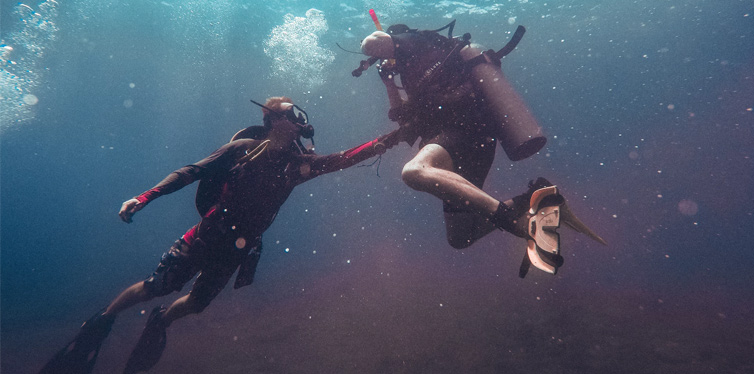
5. Feel The Virtual Zero Gravity Easily, Safely And Cheap
Floating in water will give you a feeling similar to floating in space. When you dive, you are going to be properly weighed and neutrally buoyant. You would feel you are in zero gravity and have no weight especially if you’re drift diving. Then you really do hang about just to watch the undersea world go by.
It is relatively easy to learn how to dive safely if you use a reputable diving school which you should. There is no other activity you can enjoy for a reasonable fee compared to the countless hours of wonder and fun. Diving was, about 30 years considered to be an extreme sport, but today it is a safe activity when the safety rules and precautions are followed. There is no particular age to learn scuba diving from and anyone can join in with this sport!
For those who are thinking about the costs of the specialized equipment you need, you don’t need to purchase it at once. Most diving schools rent equipment out and you can be sure it’s well maintained. Once you are comfortable and hooked on scuba diving, you will want your own brand new equipment.
6. Travel To Unexplored Places And Find Inner Peace
Google new places to dive and check out dive groups on social media and subscribe to some of the many on YouTube. The Maldives, Fiji, Mozambique or Indonesia all are known for their excellent diving opportunities. Tick off these fabulous dive sites one by one from your list of ‘places to dive’. It’s getting to places that make this sport costly so check out off-peak travel specials or set up low airfare alerts for last minute tickets with the airlines. Join an organization like Airbnb, HostelWorld or the YHO to keep accommodation costs low.
7. Swim And Enjoy A Different Experience
Underwater diving gives you plenty of chances to explore and enjoy aquatic life, the colorful and coral reefs, the sea life and the terrain and find lots of weird and wonderful things from the past cast down on the seafloor too. Shipwrecks from the Greeks era to the WWII litter the seabed, even airplanes. Many are safe for scuba divers to explore. You will not only learn how to safely dive in and around them but can also be proud to have seen some of the rarest items from history just like a real earthbound explorer.
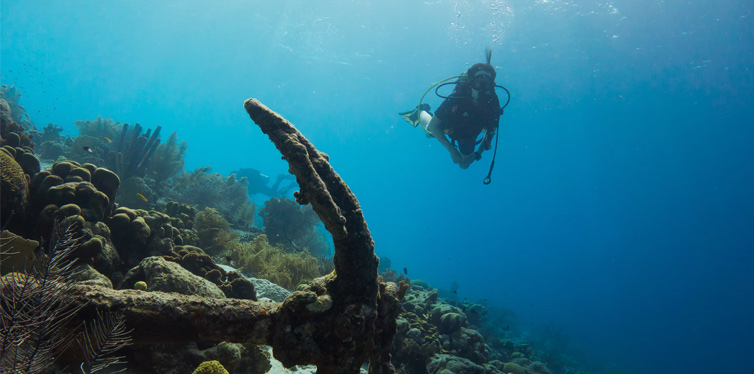
Educate Yourself about Becoming a Certified Scuba Diver
Once you have gathered the fact that scuba diving can be an extremely fulfilling experience, you’d want to explore more about becoming a certified diver. You usually have to go through three training phases to get certified. For instance:
Knowledge Development
The first phase involves learning more about the basics of scuba diving. You will discover more about things to consider when planning your dives. It will share ample information about things you need to know when selecting a dive site. It may look simple, but the truth is that you have to select a dive site keeping your experience level in mind. Your buddy’s experience level matters as well, so you have to plan accordingly. When you’ve just started as a scuba diver, you need to ensure you don’t opt for a site demanding advanced skills.
The first training phase will also teach you more about finding the right scuba gear for yourself. Not having enough information could cost you big time. Sometimes, you think a specific piece of equipment, like a dive watch or diving knife, is not that important, but it helps you record how much time you have spent underwater. Therefore, you will learn the type of gear you need and how important it really is while diving.
Finally, the first phase of certification will teach more about underwater signals along with other diving procedures to ensure that both you and your buddy are on the same page and experience no confusion when underwater.
Confined Water Dives
Once you have understood the basics, it is time to implement what you have learned in the real world. During the second phase of scuba diving certification, you will get a chance to enjoy diving in confined water – it could simply be a pool or a calm beach with pool-like conditions. What you have learned about the basics of scuba diving and scuba gear will help you perform well during this phase. Get it done properly and you will be all set to be an underwater explorer.
During this phase, you will get to know how you can set up your scuba gear correctly. One important issue you face when diving is related to water getting in your mask. You need to know the right way to avoid it in the first place and handle it if you eventually experience this situation. Moreover, you will know how to enter and exit the water in a safe and controlled way. You will also learn basic underwater navigation, buoyancy control, and safety procedures here.
While your knowledge gained during the first phase of certification will help you here, you will have an instructor around during the second phase to help you stay safe and comfortable. Once you feel comfortable diving without the instructor, you’re ready to make things more challenging and go to an open water dive site.
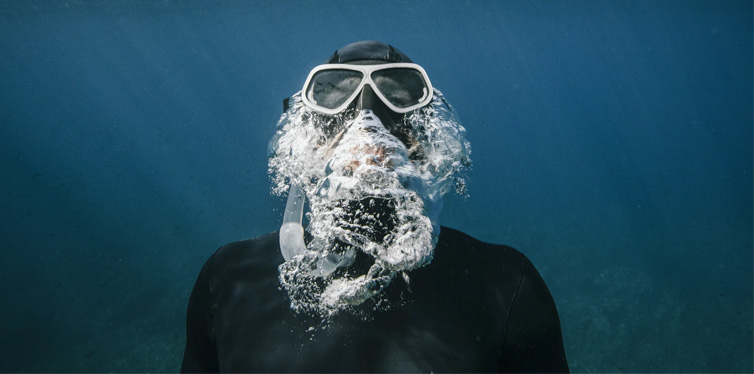
Open Water Dives
Once your instructor believes you have acquired the skill set needed to be a diver, you will be allowed to head to open water. In most cases, you will start with your instructor and make a few dives over the course of a couple of days. You will be asked to apply all the skills you have learned during the last two phases. Your instructor will be around to judge the way you move and tackle different situations. If they notice you have what it takes to be a diver and start the adventure on your own, you will soon be a certified scuba diver.
It is worth mentioning that most scuba diving courses are usually performance based and rather flexible, which means they are designed as per the time you need to learn the art. It comes down to how quickly you learn the basics and develop the skills to apply that knowledge. Once you’re confident enough, there will no stopping you and the sea will be ready to cast its spell and you will never want to stay away from that wonderful water world.


